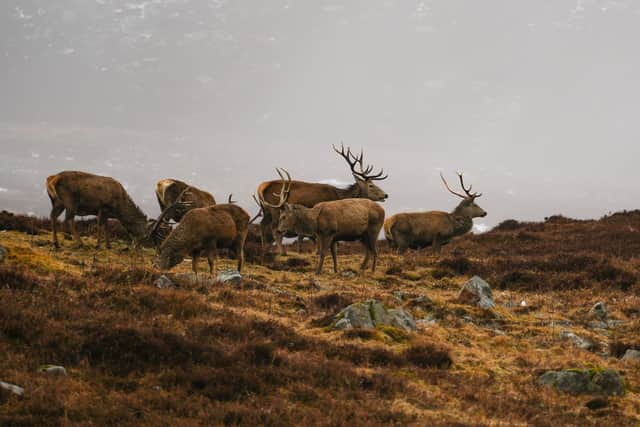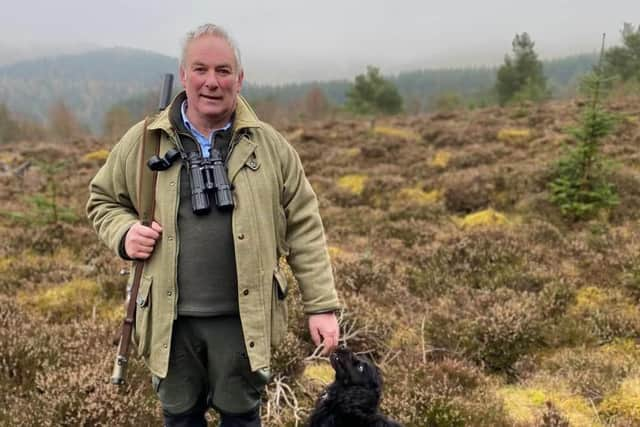Glen Coe community and wildlife trust lock horns over deer cull
A controversial out-of-season deer cull in the Highlands by one of Scotland’s largest nature protection groups has been opposed by nearly 80% of a local community, according to a new survey.
Marksmen employed by National Trust for Scotland (NTS) have shot more than 220 deer, mostly stags, since September, including 41 shot at night.
Advertisement
Hide AdAdvertisement
Hide AdThe NatureScot quango granted the NTS a special licence to protect tree regeneration without the need for fencing.


The Scottish Gamekeepers Association (SGA) carried out a survey asking for views on the cull.
Drafted by local estates and families, it was completed by 139 individuals who were either a resident or owned a business in the area.
Of those, SGA said 109 opposed the killing of deer out of season by NTS.


Job losses, negative tourism impacts and animal welfare were the principal reasons cited. Others said that alternatives such as fencing should be considered and warned that deer would be driven into Glencoe village, doing damage to people's gardens.
Only 27 respondents were in favour, saying the cull in the Glencoe National Nature Reserve would help promote habitat recovery.
Local gamekeepers, who are reliant upon deer stalking to sustain their jobs and family homes, say deer have sheltered on land now owned by NTS for millennia during winter snows before returning to surrounding hills and glens when the weather improves.
They argue that "attritional, heightened deer culls, over a long period" will reduce the numbers of deer for stalking on neighbouring estates and damage the Highland tourism industry, "with deer being viewed as a magnet for tourists".
Advertisement
Hide AdAdvertisement
Hide AdSome 26 respondents said visitors regarded deer as iconic, with a further 25 answers describing the culls as "indiscriminate", adding that culls should only be carried out when it’s legal to do so.
"This is an important gauge of community opinion," said Alex Hogg, chairman of SGA.
"At the time the cull licence became operational, we wrote to NatureScot, the licensing body. They acknowledged that, as a regulator, they had 'balancing duties'.
"Part of that would be to consider the impacts of their decision on others. Clearly, this authorised cull has been carried out against the wishes of the local community and we also know that socio-economic impacts were not properly considered.
"There must be another way, here. Glen Coe and Glen Etive are not places with lots of other employment choices. Deer, and the jobs which go with them, are of particular importance. There must be a way of balancing improving the environment- which deer managers are in favour of- but also maintaining jobs and community wellbeing."
NTS said the cull is necessary to “bring deer numbers down to a more healthy, sustainable level” for the Glen.
The charity insisted at every stage of planning an increased deer cull at the nature reserve, “we have been transparent and collaborative with the local community in Glen Coe and Glen Etive.”
A NTS spokesperson added: “Throughout this regular and ongoing engagement, we have received support and encouragement from many in the local community, while also responding directly to any concerns raised by stalkers at some neighbouring estates and by some other individuals.”
The Trust said it is aware some members of the community were not informed of the survey and that the results may not offer a balanced result.
Comments
Want to join the conversation? Please or to comment on this article.